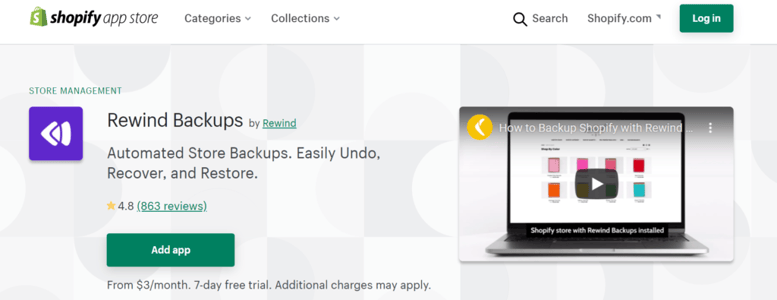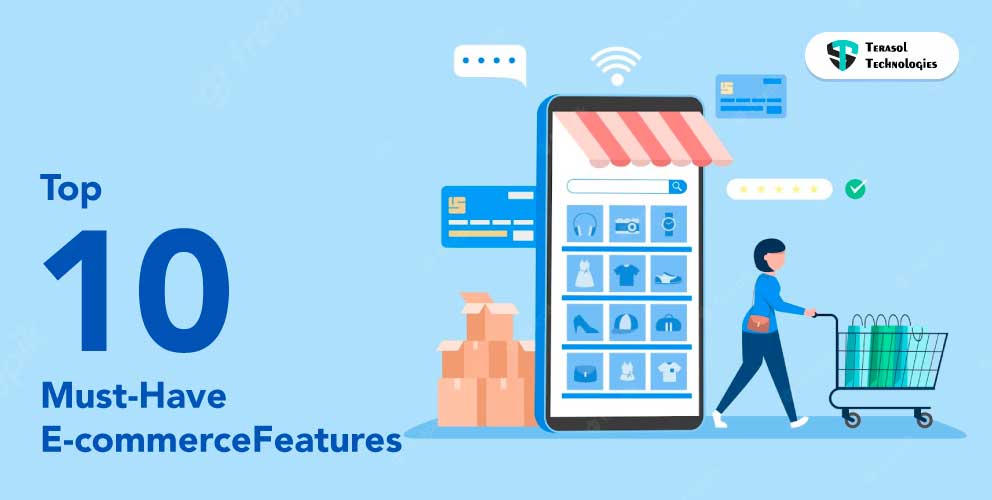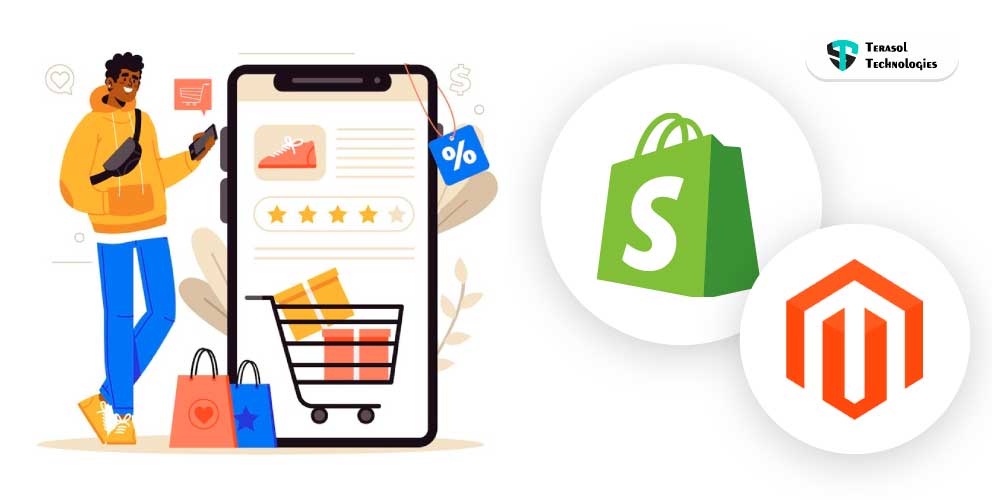Secure Shopify Store: 9 Ways to Enhance Your Store's Security
Data breaches are becoming more common in a variety of industries, including online merchants. In the last ten years, several firms have announced security breaches. Last year, if you bought anything from these stores- Adidas, Under Armour's MyFitnessPal app to the largest retail store Macy's your data might have been stolen.
If you're an e-commerce manager or the owner of an online store, it's critical to think about your store security and your customers. Neglecting security issues could be harmful to both your organization and your customers. If your online store's security isn't already a top priority, it should be.
Shopify is a terrific method to set up a business without having to worry about maintaining and updating software. Store owners, on the other hand, must maintain a high level of security for their establishment.
Shopify is trusted with the personal information of over 1,000,000 businesses and millions of customers. Shopify secure is PCI DSS compliant, and they've spent a lot of time and money to get their solutions certified as secure.
Without getting too technical, it's safe to say Shopify follows security best practices to maintain a secure network, continuously monitor threats, protect cardholder data, limit fraud, and regulate user access.
It's Great. But the rest is all up to you!
Because the security of individual stores is a different story.
Shopify and the merchant, are both responsible for the store's security. Shopify protects the platform's software infrastructure and disaster recovery. You, the store owner, are in charge of both your business's data and security, including password management, user permissions, third-party apps, backups, and recovery.
On your end of the equation, there's a LOT that can go wrong.
Shopify's security is rock-solid, but unless you do your part, flaws can appear large enough to bring your firm down. Fortunately, there are other easy solutions to secure Shopify store and enhance its security.
9 Ways to Secure Shopify Store Today

We've compiled this list based on Shopify's suggestions, with links to tools, resources, and instructions, to help you take practical and quick steps to improve and secure Shopify store while Shopify store development.
1. Password Security
Use a Strong Password, seriously Do IT!
Our first piece of advice to secure Shopify store is to use a password manager. The best defense against unwanted access to your store is to use a strong password. Large, random passwords, on the other hand, are nearly impossible to remember.
Use a password vault to make it easy to create, preserve, and submit secure and unique passwords for each account, as well as your entire online life. One master password is all you need to remember. In addition, most password managers integrate with your browser and include an auto-fill feature, which saves you time. 1Password is one of my favorites, although LastPass is also a fantastic option.
Two Factor Authentication
When you use a password to log in to Shopify, two-step authentication means you'll also need a second step, such as a code delivered via text message or a mobile app. The first tier of authentication is your normal login and password, while the second layer is something that only the store owner knows. So, even if someone figures out or cracks your password, they won't be able to access your account.
A security feature that acts as an additional "layer" of protection against hackers.
Follow these instructions to set up two-factor authentication on your Shopify store.
Note: If you use Shopify Plus, you can enforce your employees to use two-step authentication.
2. Activate SSL Certificate
Shopify features to support an SSL certificate as part of their platform, which used to require annual subscriptions through a domain provider. Although SSL should be enabled by default, it's important to double-check to make sure your store is actively enforcing it. An SSL certificate, at its most basic level, redirects all traffic to HTTPS rather than HTTP, providing a more secure means for clients to access your store.
3. Protect Against Fraud
To secure Shopify store, Shopify has features like robust built-in fraud analysis for all merchants and also offers Shopify Plus businesses extra options such as Shopify Flow and Fraud Protect. A more advanced fraud detection tool, such as NS8, should be considered in addition to what Shopify provides for Shopify store security. NS8 assists with order fraud, advertising fraud, and overall performance protection.
4. Enforce Code Management Standards

When Shopify store merchants get serious about changing your theme's code, they should follow some code management guidelines. Most significantly, one should look at using a version control system like Git, as well as a local command-line tool like Theme Kit. At the very least, making regular backups of your theme and limiting who has access to any theme code is an excellent basis for preventing these problems. You may also provide permission levels to team members so that they can access specific areas only.
5. Lock Restricted Content
You may need to restrict access to particular items, content, or areas of your website, depending on your industry while developing the site. Whether it's to set yourself apart from the competition, attract investors, or provide members exclusive access. Permissions can be set in Shopify's admin section under Settings > Account > Staff Members. To limit the permissions of a staff member, first, add them and then click on their name. In their help center, Shopify provides a good overview on how to set up and configure employee accounts. It's better to follow the "least privilege" security philosophy, which means giving them no access at first and gradually increasing access to only what they need to execute their job.
However, to ensure your Shopify Store is secure, you can take the help of a product like Locksmith. The program lets you create a range of 'lockdown rules' to help you manage your store's overall access and security.
6. Schedule Regular Backups
Many store owners feel that because their store is hosted in the cloud, they will be safe if something is lost. However, this is not the case. A backup solution is recommended as a means of recovering from any internal 'oops' situations that may occur. Because once it is gone from the cloud is gone, not even a CSV file renders it. It lets you back up practically everything in your Shopify Store business, including goods, inventory, customers, blog entries, pages, and more, regularly.
A Shopify Plus Certified App Rewind Backup your store's key data every night, and for the most important data, it does so in real-time.

Say something goes wrong, one quickly logs into the safe Rewind Vault and chooses which items they want to restore.
- How to backup your Shopify store manually
- Find a backup app from the Shopify App Store
7. Run PCI scans regularly
Security checks that are proactive help you detect problems before they cost you customers and cash. You should run quarterly PCI scans regardless of how trustworthy your eCommerce platform host is. These scans reveal dangers and vulnerabilities that could expose your store to hacking and malware and virus infiltration. Finally, check for updates and patches for your platform as part of your routine scans, paying special attention to security upgrades.
A few more hours spent now with a developer updating your code could save you tens of thousands of dollars in the future.
8. Secure API keys
Your keys are identical to your password if you utilize the Shopify API. Many novice e-commerce store owners are unaware of the need of sharing their Shopify API keys with third parties. If you engage a Shopify developer to customize a tool, be sure the code doesn't reveal your keys and doesn't expose your keys to anybody else.
9. Gateways for secure payments
Although Shopify only retains limited data, every e-commerce store needs a payment gateway to accept payments and manage orders. You'll need a payment gateway that adheres to the appropriate cybersecurity requirements to keep both your Shopify store, money, and your customers' data safe.
What Are You Doing to Secure Your Shopify Store?
No matter who you're serving, what kind of product you're working on, or what apps you're installing, data security is crucial. You need insurance to safeguard your online store, just like you need insurance to protect your physical store.
When it comes to security and e-commerce, Shopify nails practically every ‘best practice' without the need for any adjustments. They comply with all six PCI Standards categories, have GDPR-compliant features integrated right into the platform, offer two-factor authentication, allow you to manage employee rights, and use the most up-to-date TLS encryption algorithms. Needless to say, they tick off a lot of boxes.
The proactive procedures outlined in this article, for the most part, require little more than routine maintenance and monitoring to keep your business and consumers safe.
Terasol Technologies is well-versed in Shopify security. Allow our Shopify development services to improve your e-commerce business while saving you time and money. We'd be pleased to speak with you if you're looking for a Shopify developer. Have a conversation with our professional experts now.


